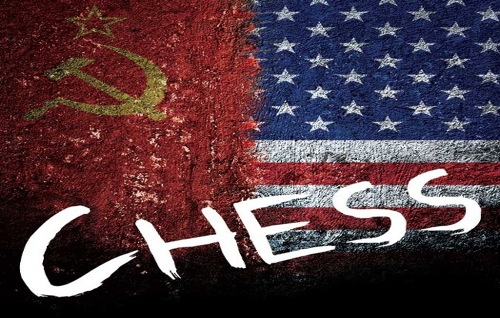
On hearing that Chess was returning to London, I was onto my agent in a heartbeat. Chess is one of those shows, like Les Miserables, Miss Saigon and Phantom, that has developed decades’ worth of fans and following, and is full of numbers performed globally and constantly. These shows form a heart of the musical theatre repertoire, and in many cases, are the inspiration to take up performing in the fist place. Yet whilst many may have sung the material in auditions, classes and concerts, few can say they have played the roles and performed the pieces in context.
An audition later, the phone rang with the wonderful news that I had been offered the role of Anatoly, or ‘The Russian’. Perhaps more significantly, friends and family began to congratulate me on the basis that I would be singing one of the show’s most famous numbers, ‘Anthem’. It dawned on me then the extent to which Chess is an iconic show, full of iconic material. Many forget that Chess has only had one fully-staged production in London – the original. The material has lived for over twenty years, but The Union’s production is its first theatrical outing since it opened in 1986 and ran for three years (The Royal Albert Hall hosted Chess in 2008, but in a concert version). In that regard, it is a Sondheim-esque piece; it has developed a cult following, is much loved by many, has been the subject of much revision and debate, without a twenty-year run that other shows are able to lay claim to.
How does one go about preparing for such a piece, and such a role? It spawns several and wide-ranging opinions: who does the best ‘Anthem’? Which cast recording is the best, How should it be sung? With what format of staging? Taking on Chess is therefore both daunting and exciting for any company and creative team. What makes our version of Chess different? After all, there would be little gain, both creatively and for the audience, in merely reprising something that closed in 1989. For me, this has been highlighted in the creative and rehearsal process to date; essentially, the way to approach such iconic material has been to forget its familiarity, and approach the piece as if it were brand new to all of us. Something easier said than done.
One of the production’s aims is to dispel the myth that Chess is difficult to understand. Whilst many have labelled it tough to follow, we have preferred Sir Tim Rice’s description of the plot as ‘sophisticated’, rather than complicated. The writers’ research was extremely thorough, and they created a human story within a Cold War backdrop, through the intellectual medium of Chess – it may seem complicated, but isn’t life just that? Our director, Chris Howell, has been superb in establishing our principal aim – tell the story. It may sound obvious, but when it comes to well-known material, this is not always black and white. Whilst many productions find alternative and increasingly tech-heavy means to approach work, this is a back-to-square-one approach. How can we deliver the piece in a way that bridges the lack of clarity discussed for many years?
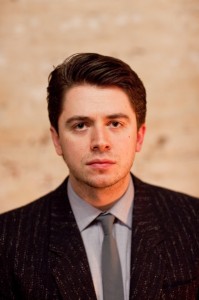 These characters are based on real people, and their actions based on real events. If the focus is constantly geared towards telling the story as truthfully as possible, in as detailed a way as we can manage, the audience should hopefully follow the journeys of the protagonists with no trouble at all. The creative process has been a generous and shared one, with the floor open to all suggestions, and within a rehearsal room willing to continuously shape and mould new layers and ideas. It is all too easy to forget that your audience may have no knowledge of the background or material involved – tell the story as though everyone is discovering the material for the first time, and above all, if anyone in the room is unclear as to why something is happening, then we must justify it in a way that improves the clarity of what we are trying to achieve. I suppose a relevant comparison at this stage might be the manner in which the recent film of Les Miserables returned to Victor Hugo’s novel and the characters’ origins, which helped many who have been fans of the musical for many years see the characters’ plights in new detail, colour and depth. The music and lyrics are the same, but their presentation is not without the confines of what we have grown accustomed to.
These characters are based on real people, and their actions based on real events. If the focus is constantly geared towards telling the story as truthfully as possible, in as detailed a way as we can manage, the audience should hopefully follow the journeys of the protagonists with no trouble at all. The creative process has been a generous and shared one, with the floor open to all suggestions, and within a rehearsal room willing to continuously shape and mould new layers and ideas. It is all too easy to forget that your audience may have no knowledge of the background or material involved – tell the story as though everyone is discovering the material for the first time, and above all, if anyone in the room is unclear as to why something is happening, then we must justify it in a way that improves the clarity of what we are trying to achieve. I suppose a relevant comparison at this stage might be the manner in which the recent film of Les Miserables returned to Victor Hugo’s novel and the characters’ origins, which helped many who have been fans of the musical for many years see the characters’ plights in new detail, colour and depth. The music and lyrics are the same, but their presentation is not without the confines of what we have grown accustomed to.
Chess is often performed with an epic orchestration, vast cast and choir, and in a large venue. Our creative team, in our intimate venue, are able to strip all of that back, and what (hopefully) remains is the bare bones of a story. Naturally, in doing such, you may be scrutinised by fans who remain loyal to previous productions and actors – a fate endured by other reincarnations of iconic shows. This can’t be helped; there will always be those who believe there is a ‘right’ and ‘wrong’ way of doing things, in theatre, and it is a positive thing when productions inspire debate. But that can’t be the concern of those involved in a new production, which needs to be just that. It is about seeing the piece through fresh eyes, and it is therefore our responsibility to try and forget previous versions.
My personal process began a few months before rehearsals began. Learning the score was the first challenge; a big sing, spanning my entire vocal range. Fortunately, the role is written intelligently, with the range of Anatoly’s music rising as the show progresses. Calm, baritone melodies develop into anxst-filled tenor lines as his story develops, which is more than helpful in plotting his journey. With the luxury of time, and the thoughtfulness of the creatives to get the music to me as soon as was possible, I am over the first hurdle, and feel confident that it is well placed in my voice. Next, and more perhaps more importantly, came the research. To adhere to Chris’s vision of the show, and his immaculate storyboarding of each scene, I wanted to gather as much as I could about the time and setting. And then of course, there was the brushing up of my average-at-best chess ability.
The backdrop to Chess is that of The Cold War. Alongside The Space Race and the Cuban Missile-Crisis, the chess battles between Soviets and Americans perfectly exemplified their battle for intellectual supremacy. What’s more, chess itself was a highly glamorous and rich game; long before many now-popular sports had become professional, these players were competing under the eyes of the world for vast sums of money. A far cry from today’s stereotype of a game for geeks. In the case of the Soviets, these were promoted and supported as the golden children of their motherland; poster boys, whose lives were in many ways controlled and interfered with as a means of showing The Soviet Union to be the superior land.
The most relevant comparison I could make was that of recent Olympians, shooting to stardom overnight, with the weight of their nations’ hopes suddenly on their shoulders. I thought of a news story that aired just before London 2012. A former Chinese Olympic medalist was now to be found begging on the streets of Shanghai, having ‘disappointed’ by only obtaining a silver medal. His funding, home and support network were all taken from him with no hesitation. This level of pressure, and this kind of treatment at the hands of the powers that be, are both explored heavily throughout Chess, and in particular by the character of Anatoly. Times may have been good, but on your head be it if you do not tow the line. There is always another candidate waiting in the wings. Researching the context of the piece has enabled me to develop Anatoly’s through-line in a way that makes more sense of his defection, his search for ‘freedom’ from the ties that have bound him since his youth, and hopefully, make him a more sympathetic character.
Sir Tim Rice based Anatoly on several players, but in particular, Viktor Korchnoi and Anatoly Karpov, whilst the show’s events are based on the battles between the likes of Karpov versus Bobby Fischer. Returning briefly to the canvas of opinions that already exists within the industry and the Chess fan-base, some were outspoken about my younger-than-usual casting of our production. One the one hand, it’s easy to say that casting and playing age – indeed any casting variable – is at the discretion of the creative team and their vision for any particular production. But in this case, it can be reinforced; researching the inspiration and context of Chess makes it perfectly clear that the players Anatoly and Freddie are based on were in their twenties and thirties. Anatoly Karpov for instance was Soviet Grand Master at just fifteen, and less than a decade later, he was challenging Bobby Fischer for the title of World Champion.
The biggest hurdle has been how to address the fact that at face value, many of the characters seem immoral, and therefore not likeable. Whilst that may be the case at a first glance, their complexities are fundamentally realistic. Our lives are littered with mistakes and decisions we may come to regret, and each dilemma faced in Chess is one that someone in the audience, if not many of them, will have faced. Granted, international defection may be an exception, but a lack of identity, or sense of belonging are certainly not bizarre ideas, particularly when feeling under pressure to please others more than following one’s individual dreams and ambitions. I have found Anatoly more sympathetic in approach by considering him a man in his late twenties. Even that is debatable – when Karpov played Fischer, the match and controversial conditions which Act One is notably inspired by, he was only twenty-four. His confusion, frustration at having to follow the orders of his Soviet puppet-masters, unhappiness in what was most likely an arranged, young marriage, and loathing of Chess and politics intertwining, all seem easier to access through the eyes of a man this age – a flawed but troubled figure struggling to find his way through a life that has effectively been mapped out before him by the Soviet Machine, having been discovered as a child prodigy.
So, as all of the above suggests, the parameters for research have been vast, and it has been a lot of information to take in. I believe it has all worked in our favour, and this information has led to a stage where this context is somewhat engrained in me. When I am preparing to give Anatoly’s opening lines, I don’t have to answer the stereotypical questions: where have I been? What is my aim in this scene? How do I feel about this character or that one? This research, more than I have given to any previous role, has led to a heightened awareness of this character and his world. That has become my focus, rather than the fact I am singing material that many are more than familiar with.
One of the highlights in the first stages of rehearsal was a meeting with a brilliant man, which consolidated all of the above, and assured me that the work had indeed been worthwhile. Adam Raoof, experienced player, Arbiter, and former Home Chess Director of the English Chess Federation, was invited to talk to the company at The Union. It was a fascinating encounter, in which he shared many facts, anecdotes, and taught the moves and strategies mentioned in the show. Raoof has met everyone who is anyone in the chess world, and he speaks of character akin to movie-stars, overpaid footballers or chart-topping musicians, as well as the timid intellectuals. He gave us all great encouragement that we were portraying the behaviour, mind-games and flaws in these people, and the game itself, in a detailed and authentic way. Credit to the creative team for organising his visit, and what a starting point – the show is called Chess after all.
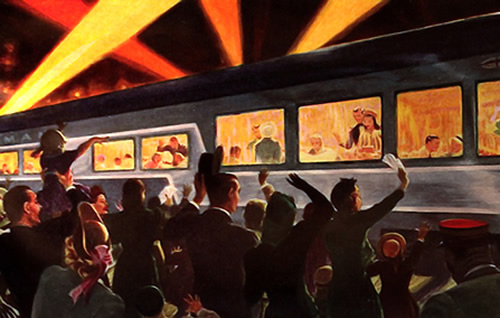
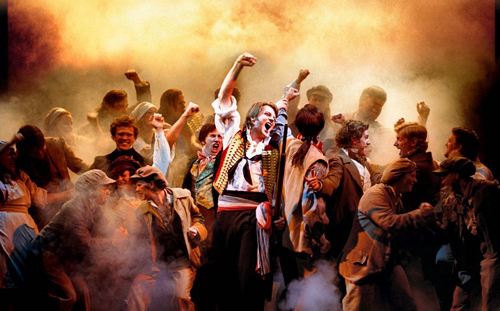
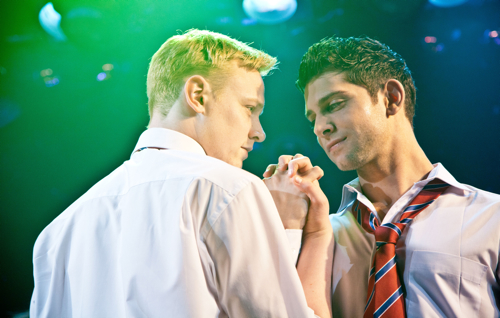
Be the first to comment